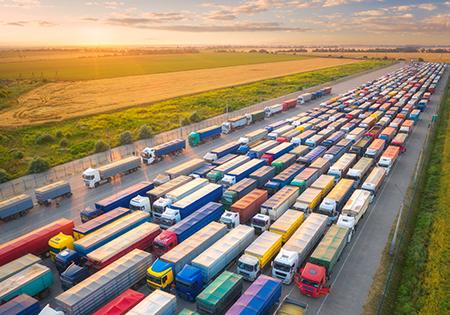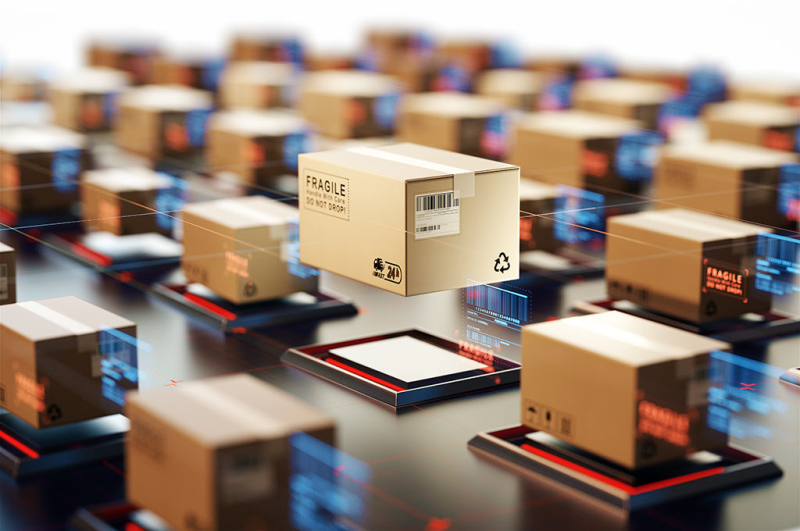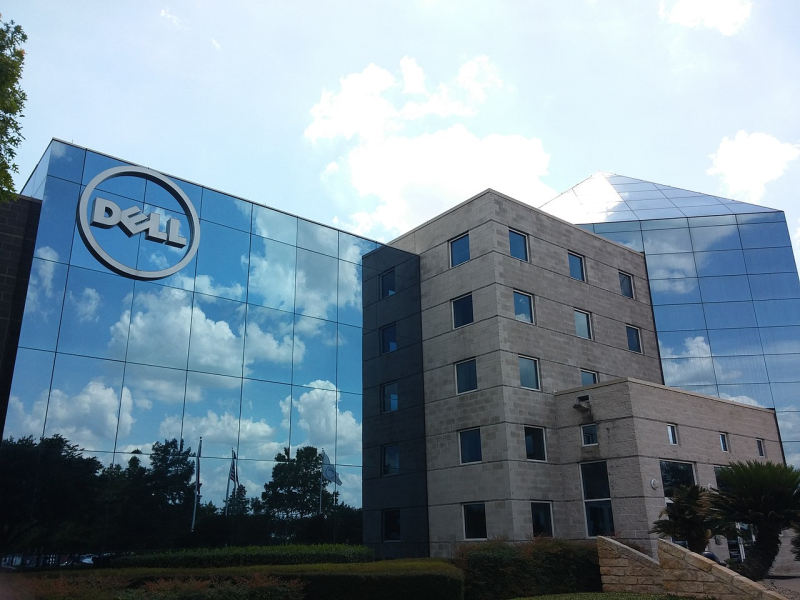
Starting June 1st, 2023 Our warehouse fee will be $0.65/cubic foot per month
In effort to lower the warehouse storage fee during inflation, we have went narrow aisle racking.This construction took us four months but the project is finally completed. With narrow aisle racking, we are able to drop storage by 24%.We as partners will go through this inflation together.
07/20/2025
The global logistics, international transportation, and import/export industries are facing unprecedented pressure to decarbonize. With freight alone accounting for an estimated 7% of global greenhouse gas emissions, the environmental footprint of this sector is significant. The pervasive inefficiency – from underserviced fleets and empty mileage to suboptimal routing – not only drives up emissions but also erodes profit margins. However, these pressing challenges are not insurmountable. The integration of artificial intelligence (AI) into logistics operations offers a powerful pathway to a more sustainable future, without compromising performance.
AI is already delivering tangible sustainability gains in two critical, often overlooked areas: fleet maintenance and transport operations. By enabling faster, data-driven decisions, streamlining complex processes, and fostering smarter systems, AI empowers the logistics sector to move goods more cleanly and efficiently.
The stakes are remarkably high. Siemens reports that the world’s 500 largest companies collectively lose nearly $1.4 trillion annually due to unplanned downtime – a staggering 11% of their revenues. Logistics operations, characterized by their stringent delivery windows and high asset utilization, acutely feel the impact of such disruptions.
Fleet maintenance, though often overlooked in broader sustainability discussions, is a pivotal area for environmental impact. Vehicles that are overserviced lead to wasted resources, including materials and time. Conversely, underserviced vehicles are prone to breakdowns, necessitating costly repairs and premature replacements. Both scenarios are detrimental to business profitability and environmental health.
AI offers a superior approach, beginning with standardized maintenance protocols. Predictive and optimized maintenance strategies are gaining significant traction, particularly in North America, where new industry standards are propelling AI-driven methodologies to the forefront. The cornerstone of this evolution is the imperative for standardized data. Without it, fleets often rely on inconsistent or proprietary codes to track service intervals, hindering the scalable training of AI models and the sharing of insights across disparate systems.
For deeper insights into how advanced technologies are reshaping logistics, explore our article: Transforming Smart Logistics through Advanced Connectivity and Automation
New frameworks, such as the Vehicle Maintenance Reporting Standards (VMRS) developed by the American Trucking Associations’ Technology and Maintenance Council, are revolutionizing this landscape. By establishing a universal language for tracking maintenance items, VMRS lays the groundwork for adaptive, AI-powered decisions. This includes determining optimal oil change intervals based on real-world engine load and usage, rather than arbitrary timeframes.
While VMRS represents a substantial leap forward in North America, there remains considerable global progress to be made. Much of today’s maintenance data worldwide remains fragmented. To fully unlock AI’s potential, the logistics industry urgently needs a shared data foundation: standardized code keys that serve as a common language across diverse fleets, platforms, and geographic regions. Proactive platforms are already paving the way for this future by developing open, interoperable data models designed for global adoption.
The impact of AI-driven maintenance is demonstrably tangible. AI can pinpoint the “sweet spot” for servicing, minimizing waste from premature oil changes while simultaneously preventing unnecessary wear and tear. Historically, maintenance alerts often relied on a simple dashboard light. However, AI envisions a future where the vehicle not only alerts the driver but autonomously books its own appointment, transmits performance data to a third party, and arrives at the service center at the precisely optimal moment.
Beyond the vehicle itself, AI is fundamentally transforming how freight is meticulously planned, efficiently routed, and flawlessly executed. One of the most significant and persistent challenges in modern logistics is empty mileage – trucks traversing roads without cargo, thereby consuming fuel and valuable time unnecessarily. While some inefficiencies are structural, stemming from geographical factors or the inherent organization of the freight network, many can be effectively addressed through the strategic deployment of advanced technology. AI-powered systems now meticulously analyze real-time and historical data to recommend the most efficient routes, plan complex multi-stop loads, and continuously recalculate in transit to dynamically adapt to unforeseen delays, traffic congestion, or adverse weather conditions.
Discover how innovation is reshaping global trade by reading: Rise of Smart Port: How it is changing maritime trade in future
Cloud-based logistics platforms are already operationalizing these advanced capabilities, leveraging AI to dynamically match available loads with suitable carriers and significantly minimize waiting times at busy docks. These intelligent systems are also mitigating the inherent strain of just-in-time logistics, where extremely tight delivery windows leave minimal room for error. Autonomous procurement tools are now capable of managing transport sourcing with minimal human intervention. They utilize both statistical and symbolic AI to analyze unstructured requests, identify suitable partners, and select the optimal fit based on a comprehensive set of criteria, including time, cost, and environmental impact. When combined with intelligent load planning tools that maximize truck space utilization and consequently reduce the total number of journeys required, these sophisticated systems collectively contribute to a substantial reduction in emissions across every kilometer traveled.
Navigating economic shifts requires smart strategies. Learn more in: Tariffs Rising? Here’s How Smart Logistics Companies Stay Ahead
When judiciously applied across maintenance protocols, execution strategies, and operational processes, AI possesses the profound capability to drive significant sustainability gains within the logistics sector. While AI, particularly in generative AI (GenAI) models, does consume considerable energy, the types of applications predominantly used in transportation and logistics are far less compute-intensive. Crucially, the efficiency gains and substantial emissions reductions enabled by these AI applications typically outweigh their energy footprint. It is the net effect that truly matters, and in this critical context, AI is already demonstrating transformative potential in constructing a more sustainable future for the entire industry.
However, the realization of true sustainability in logistics is contingent upon shared data, seamlessly interoperable systems, and robust collaboration among all key stakeholders: carriers, shippers, original equipment manufacturers (OEMs), and technology providers. Whether it pertains to optimizing maintenance schedules or refining routing algorithms, AI’s effectiveness is directly proportional to its access to reliable data and its ability to apply that data across a sufficiently broad sample to generate meaningful and actionable insights. This underscores the paramount importance of standardization. We are not merely developing isolated tools; we are actively shaping a smarter, interconnected ecosystem where every decision, whether made on the road or within the logistics yard, contributes synergistically to a more efficient and fundamentally sustainable whole. AI will not transform logistics in a single, revolutionary leap. Instead, by steadfastly focusing on these fundamental principles, it is already profoundly reshaping how goods move, how fleets are managed, and how ambitious sustainability goals are met. Because when the industry moves together, collaboratively and intelligently, we collectively lay the groundwork for a cleaner, more resilient, and ultimately more prosperous future.
*This article has been edited and adapted to suit the readers of Worldcraft Logistics.
From Worldcraft Logistics' perspective, this article brilliantly highlights the immediate and tangible benefits of integrating AI into logistics operations for sustainability. As a company deeply invested in efficient and responsible global supply chain management, we concur that the focus on practical applications like predictive maintenance and intelligent route optimization is crucial. The emphasis on data standardization through initiatives like VMRS is particularly relevant; without a common language for data, the true potential of AI across a fragmented global logistics landscape remains untapped. We see the collaborative ecosystem envisioned by the author as the inevitable path forward. For Worldcraft Logistics and our clients, embracing these AI-driven solutions is not merely about environmental stewardship, but also about securing a competitive edge through enhanced efficiency, reduced operational costs, and greater resilience in the face of evolving market demands and regulatory pressures. The net positive impact of AI on sustainability, as articulated, strongly aligns with our strategic vision for smarter, greener logistics.
SEO
Digital Marketing/SEO Specialist
Simon Mang is an SEO and Digital Marketing expert at Wordcraft Logistics. With many years of experience in the field of digital marketing, he has shaped and built strategies to effectively promote Wordcraft Logistics' online presence. With a deep understanding of the logistics industry, I have shared more than 500 specialized articles on many different topics.

Hot News
08/05/2024

Hot News
02/23/2023

Hot News
02/23/2023

Hot News
02/06/2023
Hot News
02/07/2023